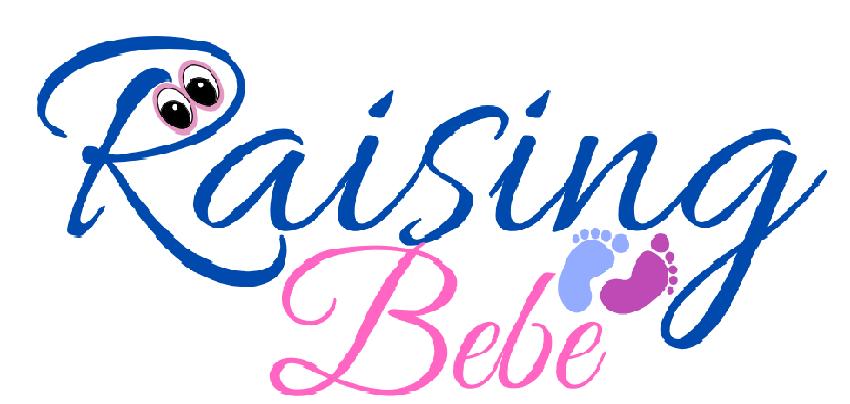Language development is one of the most exciting and important aspects of early childhood growth. From babbling as babies to speaking in full sentences as toddlers, language is the foundation of how children connect with others, understand the world around them, and express their thoughts, feelings, and needs. A child’s ability to communicate effectively influences their academic success, social interactions, and emotional development.
As parents and caregivers, understanding the stages of language development and actively supporting your child’s communication skills can play a crucial role in fostering their intellectual and emotional growth. In this post, we’ll explore the importance of language development, the key milestones, and how you can nurture your child’s language skills.
Why Language Development is Important?
Language is much more than just words it’s the key to thinking, learning, and interacting with others. Here’s why language development is so essential:
- Foundational for Cognitive Development: As children acquire language, they also develop the ability to think, reason, and solve problems. A rich vocabulary and strong communication skills are closely linked to a child’s ability to understand abstract concepts, follow instructions, and think critically.
- Improves Social Skills: Effective language skills are essential for forming friendships, expressing needs, and understanding others’ emotions. Children who can communicate clearly and empathetically are better able to navigate social situations, resolve conflicts, and develop meaningful relationships.
- Supports Academic Success: A strong language foundation is essential for success in school. Children who have developed good language skills are better at reading, writing, and participating in classroom discussions. Language development also helps children process information, ask questions, and engage in learning activities.
- Boosts Emotional Expression and Regulation: Language gives children the ability to express their emotions, which is critical for emotional regulation and well-being. When children can articulate how they feel, they are better equipped to manage those emotions and navigate challenging situations.
- Fosters Self-Confidence: Children who can communicate well feel more confident in their ability to express themselves. This confidence extends to other areas of life, from problem-solving to social interactions.
Key Stages of Language Development
Language development unfolds in stages, and while all children develop at their own pace, there are typical milestones to expect along the way. Understanding these stages can help parents and caregivers support their child’s progress.
- Pre-linguistic Stage (0-12 months)
- Key Milestones: Babies begin by making sounds such as cooing, gurgling, and babbling. At first, these sounds are random, but over time, babies start to imitate the speech patterns they hear from caregivers.
- Developmental Significance: This stage lays the foundation for later language acquisition. Babies learn the rhythm and intonation of speech even before they begin to speak.
- Single Word Stage (12-18 months)
- Key Milestones: At this stage, babies start to use their first words. These words are usually simple nouns (like “mama” or “dog”) or common objects. Children at this age often use one word to express a whole idea, such as saying “milk” when they want milk.
- Developmental Significance: The use of single words shows that children are beginning to understand the connection between words and their meanings. They start to grasp that language is a tool for communication.
- Two-word Stage (18-24 months)
- Key Milestones: By 18-24 months, many children begin using two-word combinations, such as “want cookie” or “big truck.” This shows that they are starting to understand basic grammar and sentence structure.
- Developmental Significance: At this stage, children begin to combine words to express simple ideas. This is an important step toward constructing more complex sentences and thoughts.
- Early Sentences (2-3 years)
- Key Milestones: Between 2 and 3 years old, children begin to form more complete sentences, like “I want to play” or “Where is daddy?” They may also use pronouns like “I” and “you” and start to understand simple questions and commands.
- Developmental Significance: The ability to form sentences marks a significant milestone in language development. At this point, children begin to experiment with word order and learn how to use verbs, adjectives, and plurals.
- Complex Sentences (3-7 years)
- Key Milestones: As children approach 3 to 4 years old, they start using longer, more complex sentences. By 5 to 7 years, children can typically use compound and complex sentences, ask and answer more intricate questions, and use more advanced vocabulary.
- Developmental Significance: This stage reflects a growing mastery of language rules, such as verb tenses, conjunctions, and prepositions. Children at this stage begin to grasp abstract language and engage in storytelling.
- Mature Speech (7+ years)
- Key Milestones: By the time children reach 7 or 8 years old, they are often able to converse fluently and confidently, using language for a variety of purposes narrating, explaining, persuading, and discussing.
- Developmental Significance: Children continue to refine their vocabulary, grammar, and conversational skills. They become adept at adjusting their language to suit different social contexts and understand more complex and figurative language.
How to Support Language Development?
Include a link to the American Speech-Language-Hearing Association (ASHA) page on Speech and Language Development.
As a parent or caregiver, there are several ways you can support and encourage your child’s language development:
- Talk to Your Child Early and Often
From birth, engage with your child by talking to them. Describe what you’re doing, explain things in their environment, and make eye contact. Even before they can speak, babies benefit from hearing language and learning about rhythm and tone.
- Read Together Every Day
Reading aloud is one of the most effective ways to build language skills. Start with picture books and simple stories, and gradually move to more complex narratives as your child’s language skills grow. Encourage your child to ask questions, point to pictures, and predict what might happen next in the story.
- Encourage Play-Based Learning
Language development thrives through play. Encourage imaginative play, storytelling, and role-playing activities that allow your child to use language in creative ways. Games like “house,” “store,” or “restaurant” give children the chance to practice communication and social skills.
- Listen Actively and Respond
Give your child plenty of opportunities to express themselves. When they speak, listen attentively and show that you value what they say. Respond to their statements or questions thoughtfully, which encourages them to continue talking and helps them expand their vocabulary.
- Expand on Their Words
When your child says something, expand on their words to model more complex language. For example, if your child says, “Dog run,” you could respond with, “Yes, the dog is running fast.” This helps them learn how to form more complete sentences and understand sentence structure.
- Play with Rhymes and Songs
Rhyming games and singing songs are great ways to help your child develop language skills. Nursery rhymes, songs, and rhyming books promote phonological awareness, which is important for early literacy and reading development.
- Limit Screen Time
While some educational apps or programs can support language development, it’s essential to balance screen time with real-life interactions. Face-to-face conversations, reading, and playing together are more effective for language learning than passive activities like watching TV.
- Provide a Rich Vocabulary
Expose your child to a wide variety of words in different contexts. Use descriptive language, explain new concepts, and introduce your child to new experiences. The more words they hear, the more vocabulary they can absorb and use.
- Be Patient and Supportive
Every child develops language at their own pace, and some may be early talkers while others take their time. Be patient and celebrate every milestone. If you’re concerned about your child’s language development, don’t hesitate to consult with a pediatrician or speech language therapist.
Final Thoughts
Language development is a gradual process that shapes how children connect with the world around them. By actively supporting your child’s language growth, you are helping them develop the skills needed for communication, learning, and social success. Through reading, conversation, play, and everyday interactions, you can nurture their love of language and empower them to express themselves confidently.
As your child continues to develop their language skills, remember that every word, sentence, and story they share is a stepping stone toward a brighter future. By fostering a rich, language rich environment, you’re laying the groundwork for a lifetime of learning, communication, and connection.

